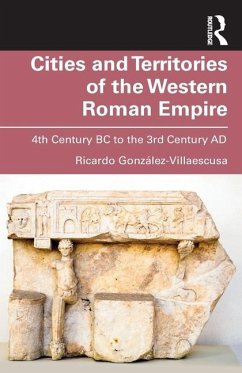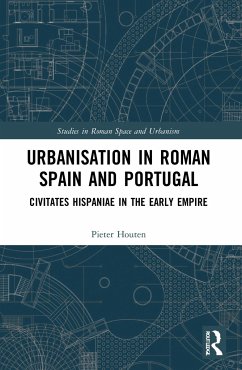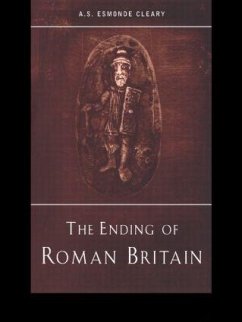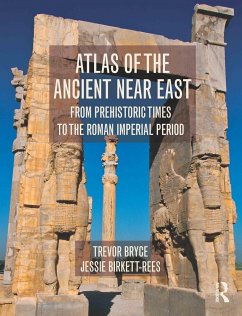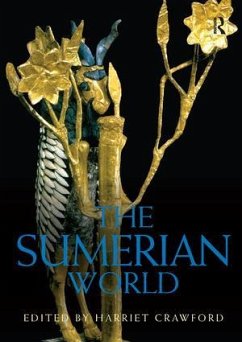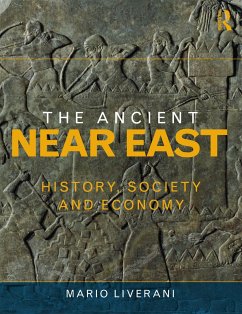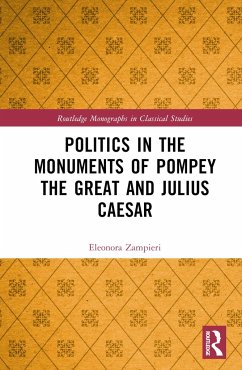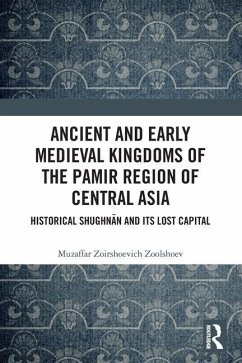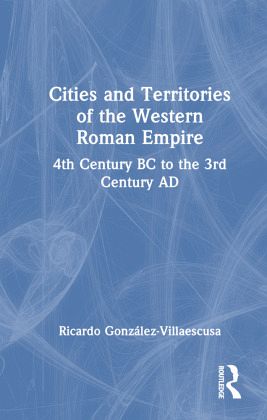
Cities and Territories of the Western Roman Empire
4th Century BC to the 3rd Century AD
Versandkostenfrei!
Versandfertig in 6-10 Tagen
154,99 €
inkl. MwSt.
Weitere Ausgaben:

PAYBACK Punkte
77 °P sammeln!
This book showcases the unique shape of urban development that took hold during the Roman Empire, beginning in the Mediterranean basin before spreading out across Europe, and offers a fresh perspective on the cities and territories of the Roman West.With the expansion of Rome came a particular form of social organisation: the Roman city. This book provides a basic introduction to Roman cities, not through the lens of architecture and urbanism, but from a social, legal, cultural, spatial, and functional perspective. It focuses on the Roman civitas - the city and its territory - as the spatial m...
This book showcases the unique shape of urban development that took hold during the Roman Empire, beginning in the Mediterranean basin before spreading out across Europe, and offers a fresh perspective on the cities and territories of the Roman West.
With the expansion of Rome came a particular form of social organisation: the Roman city. This book provides a basic introduction to Roman cities, not through the lens of architecture and urbanism, but from a social, legal, cultural, spatial, and functional perspective. It focuses on the Roman civitas - the city and its territory - as the spatial model par excellence of Roman colonialism and expansion. Exploring primarily the cities and territories of the Western Empire, such as the Iberian Peninsula, Gaul, and Britain, González-Villaescusa revives from their ruins those central places that facilitated the circulation of people, goods, and information, forming the large urban network of a unified imperial territory.
Cities and Territories of the Western Roman Empire: 4th Century BC to the 3rd Century AD is suitable for school and university students, as well as the general reader interested in the subject of Roman cities in the Western Empire.
With the expansion of Rome came a particular form of social organisation: the Roman city. This book provides a basic introduction to Roman cities, not through the lens of architecture and urbanism, but from a social, legal, cultural, spatial, and functional perspective. It focuses on the Roman civitas - the city and its territory - as the spatial model par excellence of Roman colonialism and expansion. Exploring primarily the cities and territories of the Western Empire, such as the Iberian Peninsula, Gaul, and Britain, González-Villaescusa revives from their ruins those central places that facilitated the circulation of people, goods, and information, forming the large urban network of a unified imperial territory.
Cities and Territories of the Western Roman Empire: 4th Century BC to the 3rd Century AD is suitable for school and university students, as well as the general reader interested in the subject of Roman cities in the Western Empire.




